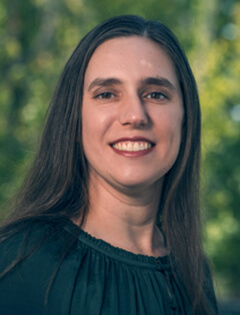In December of 2019, KGI received $1 million from Amgen, one of the world’s leading biotechnology companies, to start the KGI Center for Training in Applied Genomics (CTAG). Read the full press release now.
CTAG Goals
- Educate the next generation of scientists and practitioners
- Create a full-spectrum educational resource to meet the needs of the rapidly evolving genomics industry
- Be a place for the innovators and leaders of tomorrow’s biopharma and precision medicine landscape to learn, be inspired, and connect to one another and the industry
- Focus on the education of young scientists to become leaders in the field
- Provide executive and continuing education to enable current professions to stay on the cutting edge of the constantly changing field
Learn More About KGI's Genetic Programs
Master of Science in Human Genetics and Genetic Counseling
The two-year program is dedicated to benefiting society through the education, training, and development of innovative, collaborative, and caring genetic counselors who will serve the needs of individual patients, the healthcare system, and the bioscience industry. Learn more
Master of Science in Human Genetics and Genomic Data Analytics
The two-year program capitalizes on KGI’s core curriculum in genetics and builds upon this to expand a student’s knowledge in the area of analytics. Students will learn to translate information and bridge gaps between research scientists and practitioners. Learn more
Clinical Genetics and Bioinformatics Summer Program
The program is designed for those interested in learning more about human genomics, bioinformatics, genetic counseling, and precision medicine, exposing participants to career opportunities in clinical genetics and genomics. Learn more
CTAG Director

Barbara Kraatz Fortini, PhD
Program Director (MSGDA), Interim Program Co-Director (MSGC), Associate Professor of Genetics, Director of the Center for Training in Applied Genomics
View Profile